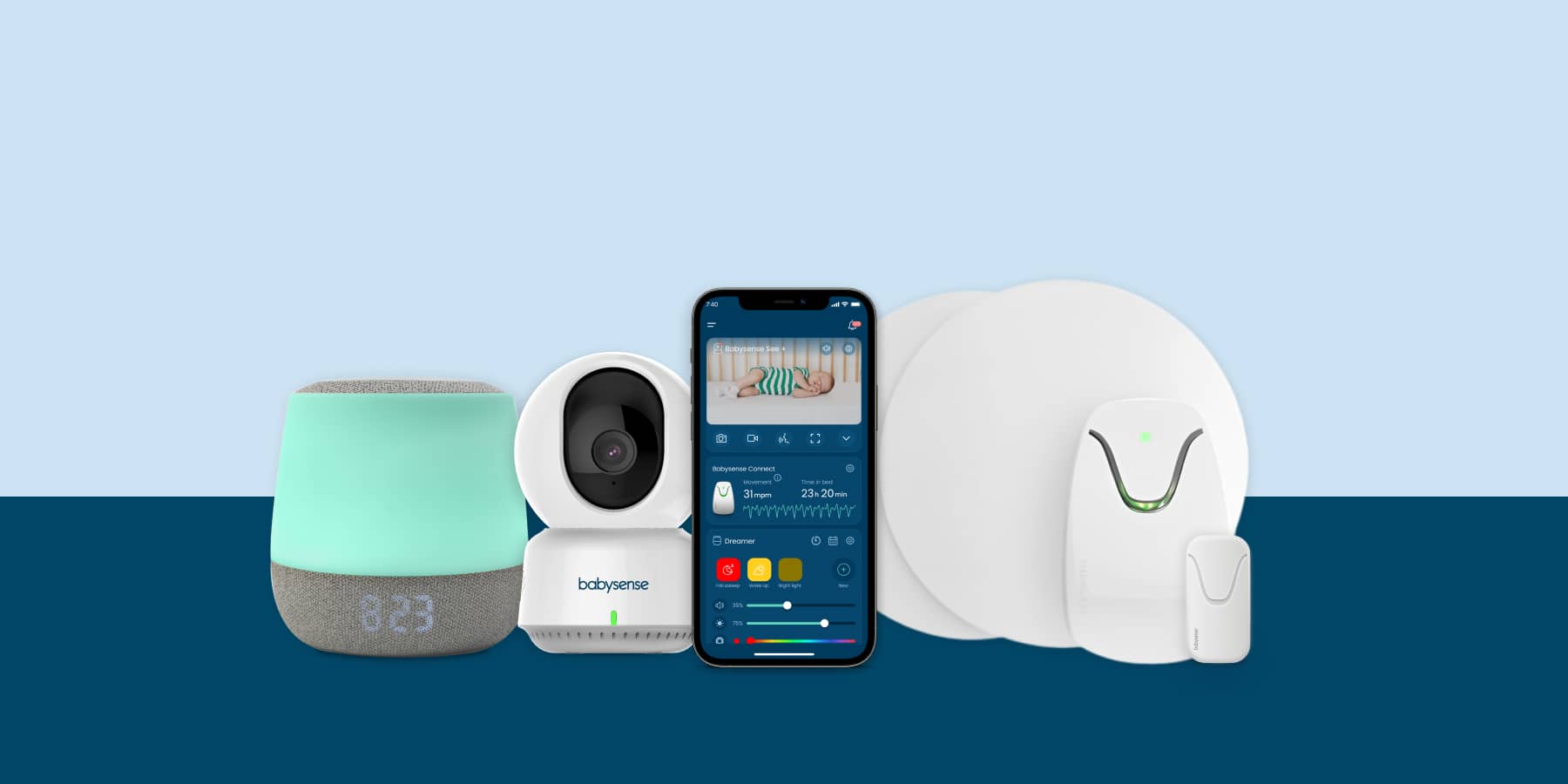And the sleep disruption raises its head again... Just as you think you have turned the sleep corner and are finally enjoying a full 8 hours sleep, have adjusted to 6am being morning and are actually having dinner with your husband, your baby throws you a sleep curveball! Is a common story heard over and over again - an 8 - 10 month old who is suddenly waking more frequently again?
Just as with your little baby, you should apply a step by step approach to eliminating the causes of sleep disruption in the older baby:
- Nutrition is a common cause of night wakings at this age. Until 6 months old, your little's ones nutritional needs were probably fulfilled by a diet of milk and possibly some simple solids like cereals, vegetables and fruit. But at around 6 months of age this all changes and your baby needs more iron and essential fatty acids, the type and qualities of which are not found in the simple starter diet any longer. This is the time to rapidly introduce proteins to each meal. From 6 months of age, your baby should have 2 tablespoons of protein in each meal - for example, yogurt, egg, cream cheese, chicken, fish, lentils, beans or white sauce. Recent research shows that introducing proteins, including fish and whole egg does not need to be delayed until 9 months, in fact introducing them as soon after 6 months of age as possible is better for allergy prevention. (Feeding Sense, 2010). Proteins have a higher level of fats so contain the essential fatty acids that your little one needs at this stage. In addition, protein takes longer to digest than carbohydrates so your baby will feel full for longer. Just introducing protein at this age may sort out your baby's sleep problems.
- Medical causes of night wakings may occur at this stage for two major reasons: firstly your baby will in all likelihood cut his first tooth between 6 and 12 months. Although teething does not lead to poor sleep, over the 4 days around a tooth erupting, your baby may be uncomfortable in his mouth and may also have a congested nose, leading to night wakings. Deal with the discomfort of teething by offering Paracetamol if you can see the tooth under the gums, just for the few nights around the tooth actually appearing. The second medical cause of night wakings relates to you returning to work: if your baby is put into crèche at this age, he may be more susceptible to illness, coughs and colds, all of which can lead to poor sleep. Ear infections or glue ear in particular can wreak havoc with sleep and it is worth ruling this out as a cause of night wakings.
- Changing day routine occurs at 9-12 months as your baby drops from three sleeps and day to two .If he continues to sleep late in the day, bedtime can be difficult and you may find yourself using unhealthy sleep tools such as feeding to sleep, rocking to sleep and pushing to sleep to get your little one to sleep. By doing this, you can expect night wakings for the same habits. Make sure your baby does not sleep after 4:30 in the afternoon. This may mean shifting day sleeps so that he has two later sleeps (9am and 12pm) or bringing bedtime forward to 6pm.
-
Separation anxiety raises its ugly head between 8 and 10 months of age. Before this age, your little one is so tied to you that in his mind you and he are one person. The as object permanence begins to develop, he learns that you are separate and he wakes feeling anxious that you may not be around or available when he needs you. This means that in the middle of the night, he will call you in to just check you still exist and will respond. In this case, you will walk in to find an alert little one who instantly calms as you enter the room and goes back to sleep quite happily once he has seen you. This is so frustrating because you know there is no reason for him to need you or to wake but now you are awake and your sleep has been disrupted.
To deal with separation anxiety:
- Play hide and seek and other games during the day that make him look for you and find you, so that he learns that you still exist when he cant see you.
- Always say goodbye and hello on separation and reunion respectively.
- Make sure he has a 'doodoo' blanky such as the Baby Sense Taglet that he loves and takes to that he can reach for to get comfort.
- Developmentally, the 6-12 month old is very busy cementing his milestones - sitting, crawling, getting from lying to sitting and eventually standing. You can find him practicing these new found skills at night, even in his sleep as you discover him standing in his cot. Once again, patience is the name of the game as this won’t last long. As long as you don’t allow a long term habit to creep into the mix, by offering a feed or bringing him into your bed and he will settle soon and stop these antics.
- Babies of this age are serious creatures of habit. The best way to prevent negative sleep crutches is to put in place healthy sleep crutches. These include:
- Rigid bedtime routine - for one hour before sleep time, carry out a soothing bath time and bedtime routine that includes a story, a warm drink and a lullaby.
- Comfort object - make sure your baby can independently use his sleep comfort object (dummy, Taglet or teddy)
- Lull to drowsy activity - just before putting him to sleep, rock him to drowsy then put him down awake by sleepy.
Of all the challenges of early parenthood, sleep can be the greatest. The most disconcerting element is that babies go through stages when sleep improves and then for no apparent reason, the wheels will fall off again. The critical part to ensuring long term good habits, is to rule out the underlying reason at each stage and not allow bad habits to become entrenched.
By Megan Faure








